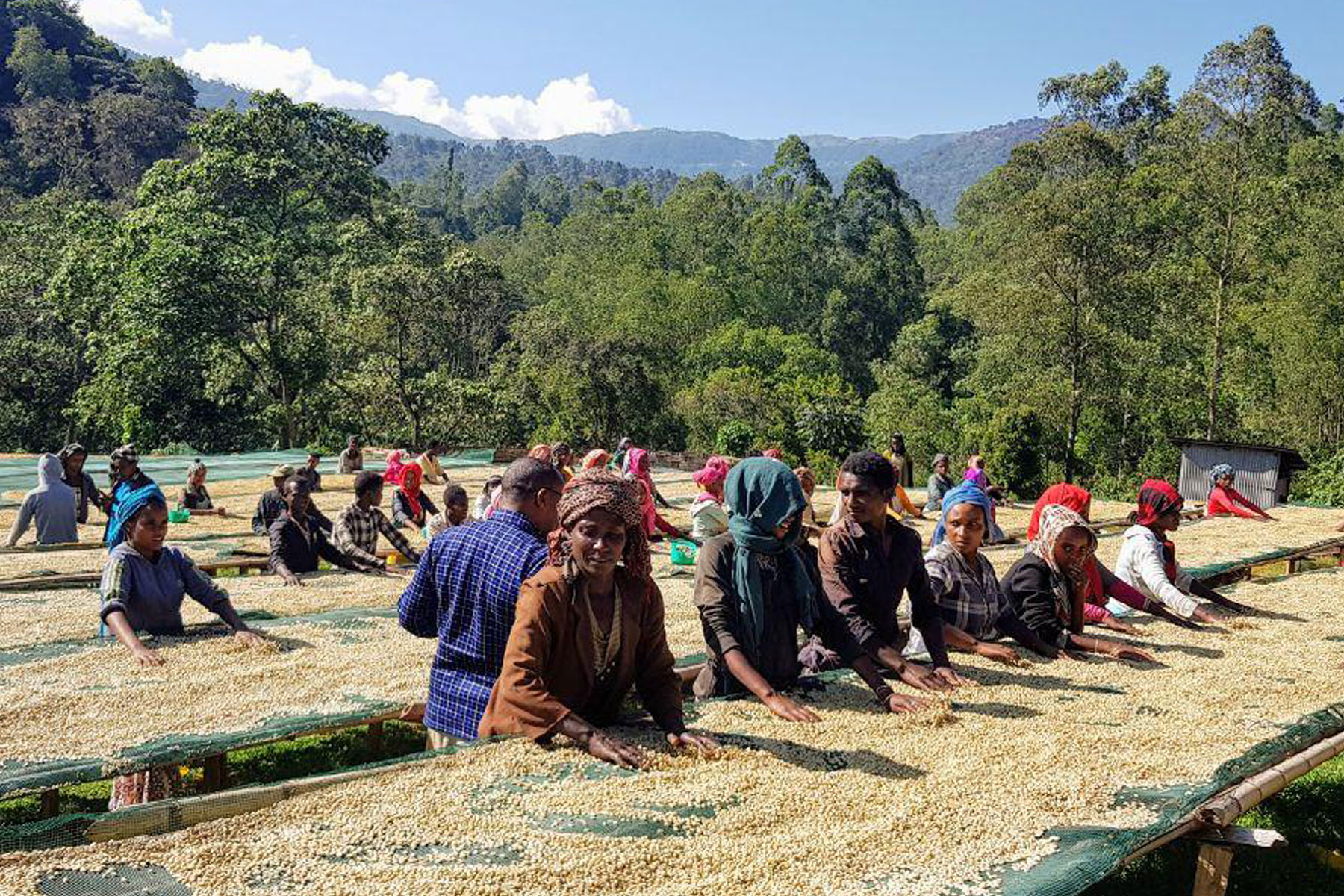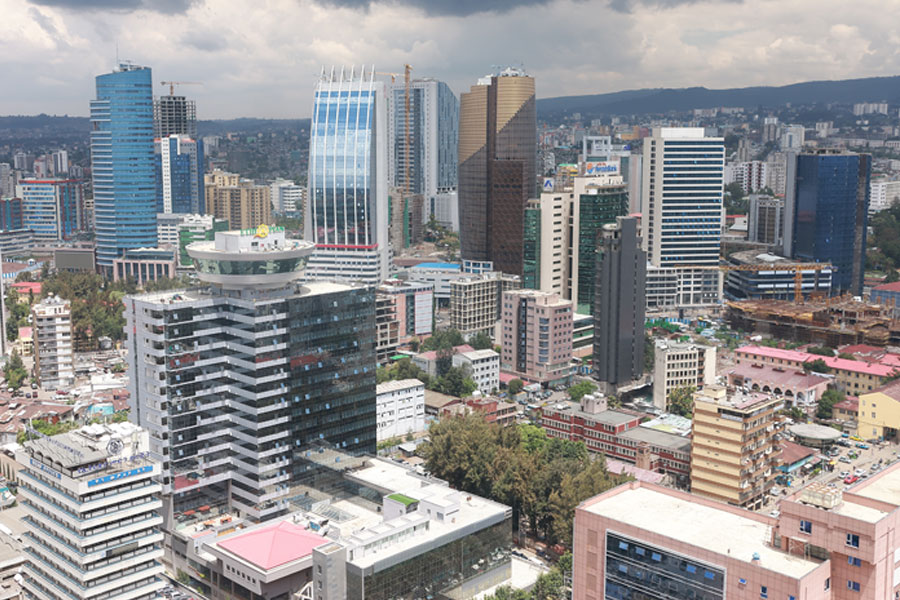
Radar | Apr 30,2024
Mar 13 , 2021
By Christian Tesfaye
President John F. Kennedy famously asked Americans to ask what they can do for their country, not vice-versa. It was meant to inspire people to rise above what they cannot be bothered to recognise, that they are a part of the problem, and work to improve it. But history has not traveled down that route, for the most part.
It makes sense. People pay their taxes and allow those with state power to make laws on their behalf.
Why should it be them that so much is expected of? Why not the government?
The COVID-19 pandemic has driven the point across. People across the world collectively asked what their governments will do for them. The actions of some, like Brazil and the United States, made it apparent that there was not much that could be done. At least not in the beginning. Governments in South Korea, Taiwan, and even China astonished the world in their response to saving lives.
The pandemic is subsiding for the rich world as their population gets vaccinated against the virus, but governments continue to ask what they can do for their people. Across the Atlantic, in the "land of the free," not to mention capital, there is a familiar answer – money. Just give people checks amounting to 1,400 dollars.
Let us take a moment to appreciate this. The government sends most adults about 56,000 Br to spend as they wish. It is a third round of stimulus checks with the first and second rounds amounting to 1,200 dollars and 600 dollars, respectively. This is lightyears removed from the time monarchs levied taxes and tributes because, well, they were monarchs. It was not to build roads, schools or buy grain if farmers were having a bad season. Taxes were employed to pay soldiers for wars, keep the clergy satisfied and fund the monarch's lavish lifestyle. Public policy was much less complex in those days.
Now, in the US, the government gives money to citizens that are struggling as a result of the economic downturn. On top of stimulus checks, unemployment benefits will be increased, and rental and food assistance will be ramped up, costing the government 1.9 trillion dollars.
In much of the developed world, the United States is not considered that much of a social welfare country, at least not compared to those in Europe. From health care to education, the government covers much of it in an astounding Bismarckian push to redistribute wealth.
The story is very different in countries such as ours. Much of this dynamic was best portrayed in the YouTube series Economics Explained, on a video titled, “How The Dutch Economy Shows We Can't Reduce Wealth Inequality With Taxes.”
“I would rather be in the bottom 10pc of the Netherlands … than the top 10pc of Ethiopia,” the narrator said.
This was much more a discussion on social mobility, which is heavily restricted in Ethiopia. There is no denying that the country is growing. It is quite astonishing that the International Monetary Fund (IMF) finds that the economy will continue to expand this year despite a significant political crisis and slowdown in business activity.
Still, when a once in a century pandemic came, there was not much the government could do. Even when modern science progressed to a point where a vaccine could be developed within a year, Ethiopia is reduced to appealing to rich countries' better nature not to leave us in the dust of their success.
What this country has to offer us in huge doses is instead endless types of nationalisms and the promise of national or ethno-national greatness. All we seem to expect is not effectiveness or a government able to provide its people with basic needs and services but avoidance of a complete breakdown of the state and society, as in Yemen or Somalia. This is our standard.
We have stopped asking what our country can do for us. We keep being asked what we can do for it.
PUBLISHED ON
Mar 13,2021 [ VOL
21 , NO
1089]


Radar | Apr 30,2024

Radar | Jun 20,2020

Radar | Jan 29,2022

Advertorials | Jul 11,2019

Fortune News | Feb 19,2022

Radar | Dec 07,2019

Radar | Jan 15,2022

Fortune News | Apr 13,2024

Fortune News | Mar 30,2024

Radar | Oct 26,2025

Photo Gallery | 178702 Views | May 06,2019

Photo Gallery | 168896 Views | Apr 26,2019

Photo Gallery | 159736 Views | Oct 06,2021

My Opinion | 137105 Views | Aug 14,2021
Commentaries | Oct 25,2025

Dec 22 , 2024 . By TIZITA SHEWAFERAW
Charged with transforming colossal state-owned enterprises into modern and competitiv...

Aug 18 , 2024 . By AKSAH ITALO
Although predictable Yonas Zerihun's job in the ride-hailing service is not immune to...

Jul 28 , 2024 . By TIZITA SHEWAFERAW
Unhabitual, perhaps too many, Samuel Gebreyohannes, 38, used to occasionally enjoy a couple of beers at breakfast. However, he recently swit...

Jul 13 , 2024 . By AKSAH ITALO
Investors who rely on tractors, trucks, and field vehicles for commuting, transporting commodities, and f...

Oct 25 , 2025
The regulatory machinery is on overdrive. In only two years, no fewer than 35 new pro...

Oct 18 , 2025
The political establishment, notably the ruling party and its top brass, has become p...

Oct 11 , 2025
Ladislas Farago, a roving Associated Press (AP) correspondent, arrived in Ethiopia in...

Oct 4 , 2025
Eyob Tekalegn (PhD) had been in the Governor's chair for only weeks when, on Septembe...

Oct 25 , 2025 . By YITBAREK GETACHEW
Officials of the Addis Abeba's Education Bureau have embarked on an ambitious experim...

Oct 26 , 2025 . By YITBAREK GETACHEW
The federal government is making a landmark shift in its investment incentive regime...

Oct 29 , 2025 . By NAHOM AYELE
The National Bank of Ethiopia (NBE) is preparing to issue a directive that will funda...

Oct 26 , 2025 . By SURAFEL MULUGETA
A community of booksellers shadowing the Ethiopian National Theatre has been jolted b...